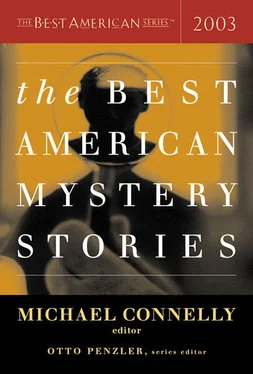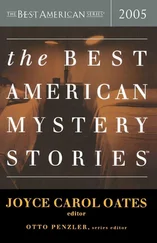Perhaps I am too harsh. In truth, at times some Métro stations assume the festive milieu of a carnival. Music, gay and loud, echoes through the corridors and up and down the stairwells. Accordions, guitars, saxophones, trumpets, you hear them all. North African marabouts offer to tell your fortune. For a few francs more they’ll improve your love life and increase your sexual stamina. Angry young men deliver orations about famine, drought, war, unemployment. Puppeteers perform. Feet stamp, lovers smooch. Beggars without legs rattle their cups on the quai.
And the peddlers! Legions of vendors wangle peanuts, floral bouquets, and cheap jewelry. These immigrant salesmen have big dreams. From the subterranean atmosphere of beggary and vagrancy there is no direction but up. There in the Métro, budding entrepreneurs become inured to thievery and vice, good training for a career in business.
Altogether, this teeming, clamorous world is not unlike a raucous scene from Dickens or Hugo’s lunatic rabble in the Court of Miracles. Ironically, there is little violence. Petty graft prevents serious crime, as any policeman knows. When violence does rarely occur even the most hardened hustler is shocked.
In any case, this underground circus exists and I work there. For a short time, it is intriguing. It appeals to one’s fascination with the perverse, like a freak show or blue movie. Repulsive though it is, one cannot help but watch. Of course, the novelty wore off for me long ago. Now when it begins to irritate me, when my eyes grow dim and my skin feels clammy, I seek sunlight. I work Right Bank streets and tourist sites.
I mentioned the Métro musicians, which reminds me of a particular incident I wish to relate. Like the vendors, these musicians are everywhere — in the stations, the corridors, the trains. Some are superb. I think of a courtly old man who plays a violin in the Châtelet station, or a somber young woman in a blue evening gown who sets up her harp at St. Michel.
There are bad ones, too, naturally. A man who played the trumpet once got on the Number 4 line and punished everyone from St. Placide to Les Halles. People held their ears and griped. They got off the train just to escape. On that same line, a tall blond woman with enormous red lips performs as a one-person band. She wears high heels and puts her hair in a beehive. She plays accordion and sings while blowing a harmonica, kazoo, and steel whistle. A tambourine hangs from one arm, a bracelet of bells jangles on an ankle. She is awful but people applaud her energy so her purse overflows with tips.
But the particular musicians I have in mind are a group of South American Indians who frequently appear in the Montparnasse station. They play that eerie, wind-driven music from the Andes. Two bamboo flutes, a guitar, a mandolin, drums, and a gourd rattle. They usually perform during evening rush hour when the money flows best. For fifty francs they sell a recorded cassette tape. They call themselves Andes Wind.
I first heard them from a stairwell in the station. The music was indescribably sweet, both joyful and sad, simple and complex at once. The sound called to me. Irresistibly, I was drawn toward it. Finally I saw them near the central escalator — seven smiling men, short, stocky, with dark skin and thick black hair. Some wore colorful woven ponchos, others beaded cotton jackets. I took a position against the wall and listened. I soon entered into something like a trance.
How is it that some kinds of music make a person feel happy and sad at the same time? Those Andean songs spoke to me that way. I was overcome by a deep melancholy yet felt completely at peace. Though I am not by nature maudlin, now and then the poignancy of profound melancholia has the effect of a purgative. For more than an hour I listened.
In the end, I moved away from the wall to the front of the crowd, as near the musicians as possible. I basked in the exquisite illumination which swelled over them and flowed through all who listened. It really was quite extraordinary. An open guitar case cluttered with coins and paper notes lay on the floor at their feet. I first put in one twenty-franc note, then another.
The band finally took a short rest. One of the flute players, a heavyset fellow who wore long hair in a ponytail, edged through the crowd accepting donations and selling cassette tapes. When he gave change, I noticed he carried a large wad of bills in the left pocket of his beaded jacket. He stopped near me.
On impulse I spoke to the young man and mentioned how the music seemed quite special. I said it struck me as otherworldly, celestial, even mystical. I felt a bit embarrassed by my enthusiasm, especially the triviality of my words, but they were sincere and he agreed with a simple naturalness that put me at ease. I noticed then that his face emanated the same quality of deep, meditative serenity with which the music resonated in my breast. When he gazed at me, it seemed for a moment as if something preternatural passed between us. In my experience, the event was unprecedented. Then someone touched his arm and he turned away.
I faded into the crowd and left. I went for a long walk down Rue de Rennes and along St. Germain, still listening to the ethereal modulations of the flutes reverberating in my head. The curious sensation stayed with me for the longest time.
When I stopped for couscous in a Tunisian café, I stepped into the toilet and counted the money. It was a decent take, almost a thousand francs.
I wondered if the serene young musician had lost his composure. I hoped not. But he really was so careless and the temptation was too great. Even artists should show a little responsibility.
The final incident pertains to the current state of my craft. Forgive me if I complain. It dismays me to watch the people in the trade today, especially the younger ones. They are clumsy and unprepared. They have no self-respect.
Practice, much less real apprenticeship, never occurs to them. One need only see them work. One morning they decide to become a pickpocket, that evening they grab for a wallet. These impostors have no idea what is required. They lack subtlety. Instead of skill they depend on violence. If their victim protests they pull a razor or knife. They pick on the elderly, on single women. They work at night. Naturally, their takings are small, so they double their efforts. Soon everyone feels frightened.
In my opinion, this decadence parallels the decline in the culture. We French are a democratic culture built on aristocratic forms. Hugo warned against erosion, Spengler predicted it. Who listened? Now the debasement of form has become a popular pastime, a disease we import. We send the sun to the west, it sends darkness back.
No doubt some will express astonishment to hear a pickpocket deploring the loss of values, quoting Hugo and Spengler. Such incredulity merely reflects the decline to which I refer. Nowadays we presume only intellectuals and the upper crust are literate, and the latter I seriously doubt. It wasn’t always that way. In my generation, even thieves and pimps read books, went to the theatre, listened to Mozart as well as Piaf. I knew a burglar who was a closet poet. Genet became a famous author. So much for stereotypes.
But occasionally a young pickpocket completely surprises me. I recall one day when I had worked the tourist crowds on the Right Bank. Tourists are easy marks for the most part, especially Americans. I always know where an American keeps his wallet. He touches it too often. He is so excited to arrive in the City of Lights that a kind of elation overcomes him and he neglects to think. The brochures warn him but he ignores the precautions.
He is a strangely naive creature, this American. Everything takes him by surprise. He expresses great optimism and is continually disappointed. He considers pessimism a weakness. But he is well organized. In that respect he surpasses even a German. Such a view contradicts orthodox notions, but it is true.
Читать дальше












